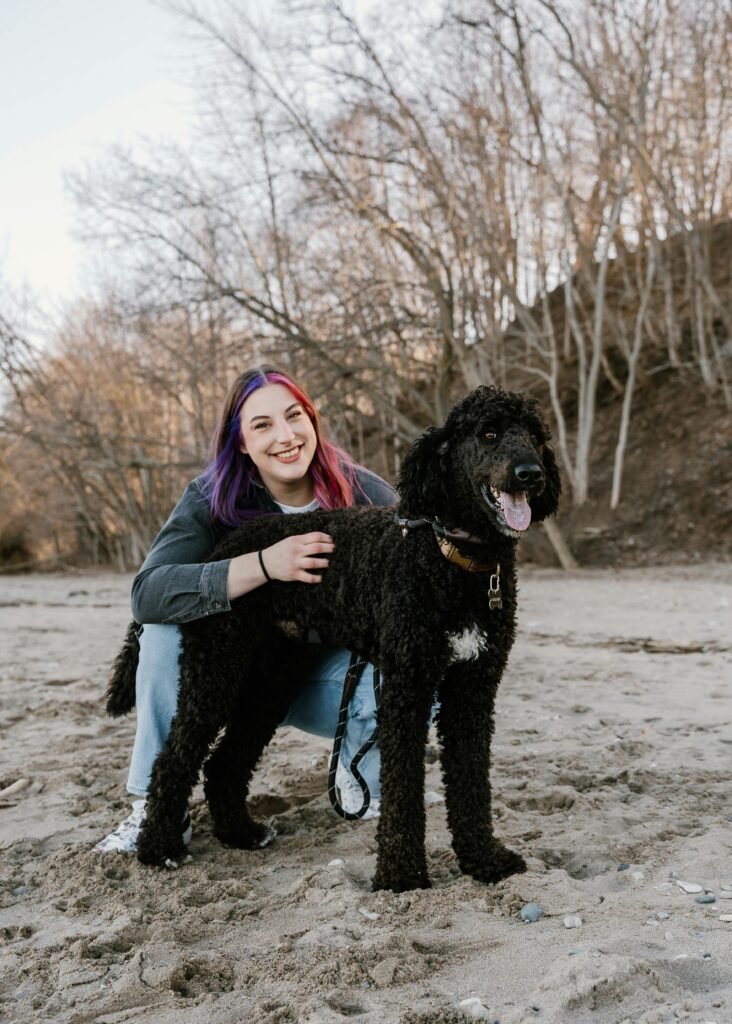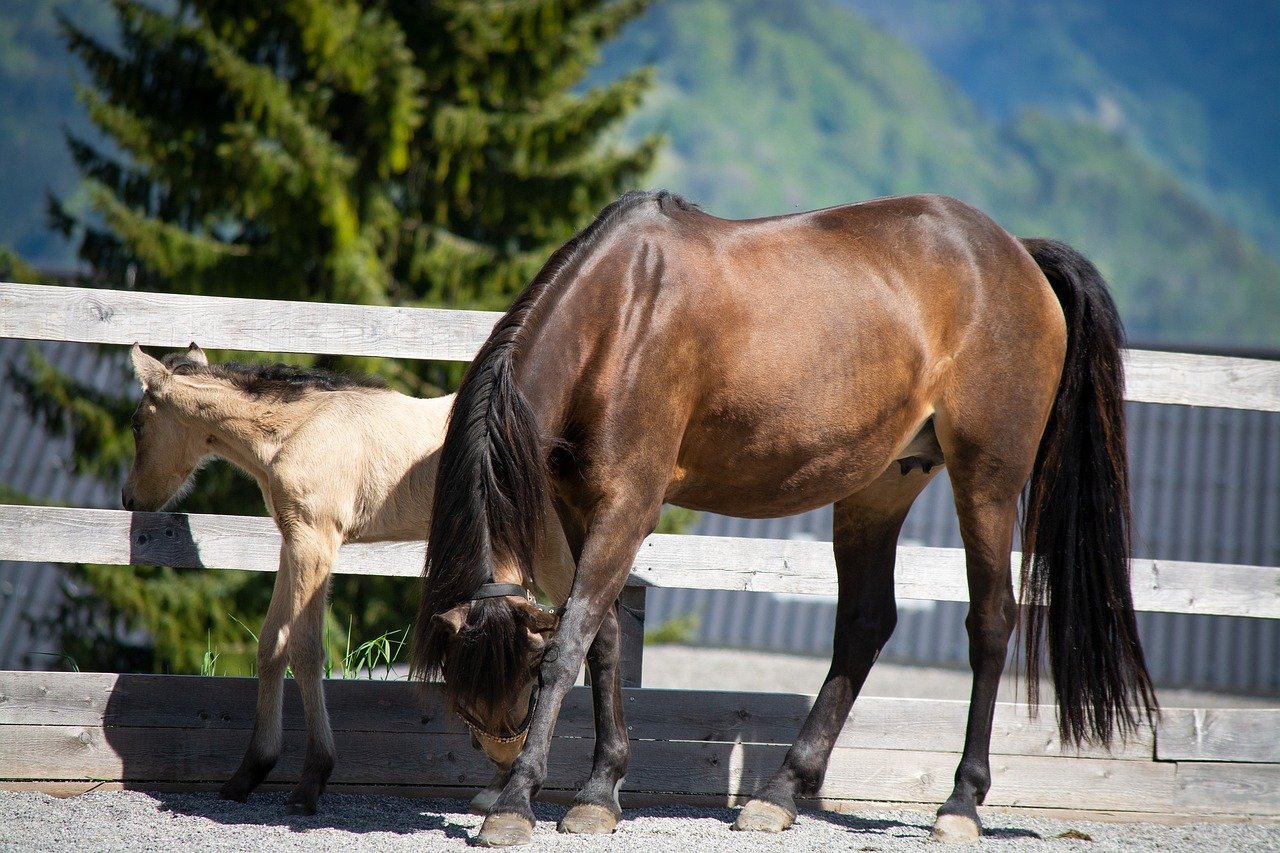Doberman Pinschers have long been admired for their elegant appearance and loyal nature. However, behind every beautiful champion lies a complex web of ethical considerations and responsibilities. This article explores the world of King Doberman breeding, shedding light on the crucial factors that breeders must consider to ensure the ethical and responsible breeding of these magnificent dogs. By examining the importance of health testing, responsible breeding practices, and proper care for both the parent dogs and their offspring, we aim to provide a comprehensive understanding of the ethics and responsibilities inherent in King Doberman breeding.
Genetic Quality
Health Testing
Ensuring the genetic quality of a King Doberman starts with thorough health testing. As a responsible breeder, you prioritize the health and well-being of the puppies you produce. This means conducting various tests to screen for any genetic diseases or disorders that may be present in the breeding dogs. By identifying and eliminating dogs with potential health issues from your breeding program, you are taking proactive steps towards producing healthier puppies.
Temperament Testing
In addition to health testing, evaluating the temperament of King Dobermans is crucial. Temperament plays a significant role in the overall demeanor and behavior of a dog. It is important to select breeding dogs that exhibit stable temperaments, as it greatly influences the nature of their offspring. Conducting temperament tests helps you identify dogs with the desired traits and ensures the puppies will grow up to be well-adjusted and good-natured companions.
Breed Standards
Breeding King Dobermans responsibly also involves adhering to breed standards. These standards serve as a guideline for the physical characteristics, temperament, and overall conformation of the breed. By carefully selecting breeding dogs that meet these standards, you contribute to preserving and improving the qualities that make the King Doberman unique. It is essential to prioritize the breed’s well-being and maintain the breed’s true essence while breeding responsibly.
Responsible Breeding Practices
Limited Breeding
Responsible breeders understand the importance of limiting the number of litters produced by their breeding dogs. They do not engage in excessive breeding, as this can lead to detrimental effects on the health and well-being of both the dam and her offspring. By breeding dogs sparingly and giving them ample time to recover between litters, you prioritize the overall health and vitality of the dogs in your care.
Proper Socialization
Proper socialization is a crucial aspect of responsible breeding practices. Ensuring that the puppies are well-socialized from a young age greatly contributes to their development into confident, balanced dogs. As a responsible breeder, you expose the puppies to various social situations, stimuli, and experiences early on, helping them grow into adaptable and well-rounded individuals.
Nutrition and Care
Responsible breeders prioritize the nutrition and care of their King Dobermans. They provide a well-balanced and nutritious diet to support the overall health and growth of the puppies. Additionally, regular veterinary check-ups, vaccinations, and preventive care measures are essential. By providing proper nutrition and veterinary care, you ensure that the puppies are set up for a healthy life right from the start.

This image is property of images.pexels.com.
Puppy Placement
Screening Potential Owners
Responsible breeders take great care in screening potential owners to ensure the puppies are placed in suitable homes. This process involves conducting interviews, asking detailed questions about the prospective owner’s lifestyle, experience with dogs, and their understanding of King Doberman’s specific needs. By thoroughly evaluating potential owners, you are better able to match each puppy with the right family, thus promoting the long-term well-being and happiness of both the dog and its new owners.
Educating Owners
Once a King Doberman puppy goes to its new home, responsible breeders continue to play a crucial role in educating the new owners. They provide guidance on proper training techniques, socialization strategies, and general care instructions. By arming owners with knowledge and support, breeders empower them to develop strong bonds with their new puppies and ensure the dogs receive the care they need throughout their lives.
Support and Follow-up
Responsible breeders offer ongoing support and follow-up to the new owners. They remain available to answer questions, provide guidance, and address any concerns that may arise. This level of support ensures that the puppies are well-cared for and the owners have access to valuable resources. By establishing a lasting relationship with the new owners, breeders can monitor the puppy’s well-being and provide assistance whenever needed.
Ethical Sales and Marketing
Transparent and Honest Advertising
Ethical sales and marketing practices are essential in responsible King Doberman breeding. Responsible breeders provide accurate and truthful information about their dogs and puppies. They highlight the positive qualities of the breed without making exaggerated claims or misrepresentations. Honesty and transparency in advertising create a foundation of trust with potential buyers, ensuring that they make informed decisions when choosing a King Doberman.
Clear Pricing and Contracts
Responsible breeders provide clear pricing information to potential buyers. They outline any additional costs or fees associated with purchasing a King Doberman puppy, such as shipping or health guarantees. Moreover, responsible breeders ensure that all terms are clearly explained in the contracts and agreements. By maintaining transparency in pricing and contracts, breeders foster a fair and trustworthy relationship with buyers.
Avoiding Unethical Practices
Responsible breeders are committed to avoiding any unethical practices in sales and marketing. They do not engage in practices such as misleading advertising, selling to inappropriate homes, or multiple breedings solely for profit. By prioritizing the well-being and best interests of the dogs, responsible breeders uphold high ethical standards and ensure a positive experience for both the dogs and their new owners.

This image is property of images.pexels.com.
Breeder Accountability
Record-Keeping
Keeping meticulous records is an essential aspect of responsible breeding practices. Responsible breeders maintain detailed records of each dog’s health testing, pedigrees, and any relevant information regarding the breeding program. These records help track the lineage, genetic health, and overall progress of the dogs. By maintaining accurate records, breeders demonstrate accountability and contribute to the transparency of their breeding practices.
Breeder Associations
Responsible breeders often affiliate themselves with reputable breeder associations. These associations provide valuable resources, guidelines, and support to breeders, ensuring that they stay informed and continuously improve their breeding practices. By joining breeder associations, responsible breeders showcase their commitment to ethics and professionalism within the King Doberman breeding community.
Compliance with Laws and Regulations
Responsible breeders understand and comply with all applicable laws and regulations regarding breeding practices, licensing, and animal welfare. They ensure that their breeding program meets the necessary legal requirements and follows any specific regulations set by breeding governing bodies. By adhering to laws and regulations, breeders protect the well-being of their dogs, promote responsible breeding, and actively contribute to the overall improvement of the breed.
Animal Welfare
Providing a Clean and Safe Environment
Responsible breeders prioritize the well-being of their dogs by providing a clean and safe environment. They maintain clean and spacious living areas for their King Dobermans, ensuring that the dogs have access to fresh water, appropriate shelter, and a comfortable space to rest and play. By providing a clean and safe environment, breeders promote the overall health and happiness of their dogs.
Providing Adequate Veterinary Care
Responsible breeders prioritize regular veterinary care for their King Dobermans. They ensure that the dogs receive necessary vaccinations, routine check-ups, and any required medical treatments. Additionally, they promptly address any health concerns or emergencies that arise. By providing adequate veterinary care, breeders actively contribute to the overall health and longevity of the breed.
Avoiding Inhumane Practices
Responsible breeders strictly avoid any inhumane practices that could harm the well-being of their dogs. They do not engage in activities such as puppy mills, dog auctions, or any form of cruelty or abuse. By promoting ethical treatment and advocating for the welfare of their dogs, responsible breeders set a positive example for others and help protect the King Doberman breed from exploitation.

This image is property of images.pexels.com.
Avoiding Overbreeding
Preventing Overpopulation
Avoiding overpopulation is a key responsibility of breeders. Responsible breeders carefully consider the demand for King Dobermans and the availability of suitable homes before deciding to breed. They aim to produce litters that can be effectively placed in responsible homes, without contributing to the overpopulation of dogs. By preventing overpopulation, breeders help reduce the strain on animal shelters and promote a healthier canine population.
Limiting the Number of Litters
Responsible breeders place a limit on the number of litters produced by their breeding dogs. They practice restraint and prioritize the health and well-being of both the dam and her puppies. By limiting the number of litters, breeders can dedicate the necessary time, resources, and care to each individual puppy, ensuring a higher quality of life for all involved.
Participating in Rescue Efforts
Responsible breeders actively participate in rescue efforts for King Dobermans. They understand that not every dog they breed will find a permanent home, and they are committed to taking responsibility for the dogs they bring into this world. By supporting rescue organizations, fostering, and promoting adoption, breeders contribute to the welfare of the breed as a whole.
Continued Education and Improvement
Staying Updated on Breeding Techniques
Responsible breeders understand the importance of staying updated on the latest breeding techniques and advancements in veterinary science. They actively seek out educational opportunities, attend seminars, and engage with experts in the field. By continuously learning and improving their knowledge, responsible breeders can make informed decisions and employ the most effective breeding practices.
Participating in Breed-Specific Education
Responsible breeders also engage in breed-specific education, where they deepen their understanding of the unique characteristics, health concerns, and history of the King Doberman. By immersing themselves in breed-specific education, breeders become well-equipped to make informed breeding decisions and prioritize the overall health and well-being of the breed.
Engaging in Ethical Discussions
Ethical discussions within the breeding community play a vital role in responsible breeding. Responsible breeders actively participate in these discussions, exchanging knowledge, ideas, and experiences with other breeders. By engaging in ethical discussions, breeders create a supportive network that promotes best practices, encourages accountability, and fosters continuous improvement within the breeding community.
Breeding for Health and Longevity
Health-Focused Breeding Selections
Responsible breeders prioritize health when selecting breeding dogs. They thoroughly research the health history of potential breeding dogs to ensure they have a low risk of passing down genetic disorders or diseases to their offspring. By making conscious choices focused on health, responsible breeders contribute to producing King Dobermans with a better chance of living long, healthy lives.
Minimizing Genetic Disorders
Responsible breeders actively work towards minimizing the prevalence of genetic disorders within the King Doberman breed. They make informed breeding decisions by considering genetic health records, conducting health tests, and consulting with veterinarians and genetic specialists. By minimizing the occurrence of genetic disorders, responsible breeders promote the well-being of the breed and increase the chances of producing healthy puppies.
Promoting Longevity
Promoting longevity is a priority for responsible breeders. They aim to breed King Dobermans with genetic lines that have a history of longevity and good health. By considering the lifespan and overall health of potential breeding dogs, breeders can contribute to producing dogs with an increased lifespan and a higher quality of life.
Breeding for Sound Temperament
Behavioural Assessments
Responsible breeders conduct behavioral assessments on their breeding dogs to evaluate their temperament and overall behavior. They identify dogs with stable temperaments, sound reactions, and a balanced disposition, as these traits are essential for producing King Dobermans with desirable behavior. By prioritizing sound temperament through behavioral assessments, breeders ensure that their puppies grow up to be well-adjusted and emotionally stable dogs.
Socialization and Training
Responsible breeders actively socialize their puppies from a young age and encourage proper training for both the puppies and their new owners. They expose the puppies to various environments, people, and situations, promoting their adaptability and confidence. By providing a solid foundation of socialization and training, responsible breeders contribute to producing King Dobermans that are well-rounded and capable of successfully integrating into various lifestyles.
Promoting Stable and Well-Adjusted Dogs
Responsible breeders prioritize producing King Dobermans with stable and well-adjusted temperaments. They select dogs for breeding that exhibit calmness, trainability, and resilience. By focusing on promoting stable and well-adjusted dogs, breeders ensure that the puppies are more likely to develop into confident and balanced individuals that can thrive in their new homes.
In conclusion, responsible breeding practices in the King Doberman community encompass various considerations. From prioritizing genetic quality and health testing to responsible puppy placement and ethical sales practices, responsible breeders demonstrate a commitment to the well-being of the breed. By upholding high standards of care, accountability, and continuous education, responsible breeders contribute to the overall improvement of the King Doberman breed, promoting health, sound temperament, and longevity for these magnificent dogs.



